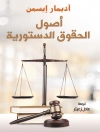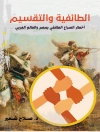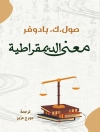The future of our world over the next decade is being shaped by the Sustainable Development Goals (SDGs) that seek to uphold children’s wellbeing and, by their call to leave no one behind and to reach the furthest behind first, shine a spotlight on the world’s most vulnerable populations including children and adolescents living in poverty and exclusion. The transformative steps promised in the SDGs to ‘shift the world onto a sustainable and resilient path’ assumes greater significance in the post-COVID-19 world where structural exclusions are starkly exposed and deep societal inequalities thickly underlined.
This volume seeks to address the main drivers of poverty, exclusion, urbanization, and violence against children and adolescents and investigates how knowledge, information, data collection, measurement, and monitoring can support strategies and innovations to effectively implement the SDGs by drawing on data and experience from several countries across the world including Bangladesh, Colombia, Côte d’Ivoire, Ethiopia, Ghana, Guatemala, India, Indonesia, Iraq, Kenya, Malawi, MENA countries, the Netherlands, Pakistan, Sierra Leone, Suriname, and Thailand. As a result, it contributes to revealing the politics of social inclusion, offering policy proposals towards overcoming inequality and exclusion among children and adolescents.
عن المؤلف
Sudeshna Chatterjee has worked in the international development field for nearly twenty years as a researcher, evaluator, and technical advisor for both non-governmental and UN agencies. She is a consultant to UNICEF, HQ and led the global evaluation of UNICEF’s work on children in cities. Dr. Chatterjee is also the founder and CEO of Action for Children’s Environments (ACE), a knowledge-based non-profit organization. She holds an interdisciplinary Ph D intersecting policy, planning and design, environmental psychology, and cultural geography from North Carolina State University.
Katie Hodgkinson is a Post-Graduate Researcher at the University of Leeds, working on the Changing the Story project. Her research focuses on arts-based non-formal education programs with young people in post-conflict countries, using a social justice lens to explore the relationship between formal and non-formal education as well as other processes and power dynamics embedded in programs. Katie has previously worked on research projects exploring the social exclusion of vulnerable young people and as part of the Sexual and Reproductive Health and Rights Alliance, funded by the Netherlands Ministry of Foreign Affairs.
Alberto Minujin is a professor at the Studley Graduate Program in International Affairs at The New School, with a special focus on topics related to social policy and children’s rights. He is the founder of Equity for Children and a member of the Observatory on Latin America at The New School. Minujin was awarded the Argentina Bicentennial Medal in recognition of his contributions to the fields of child rights and social policy. Professor Minujin is the author of many books, articles, and papers about child rights, social policy, and the middle class.












